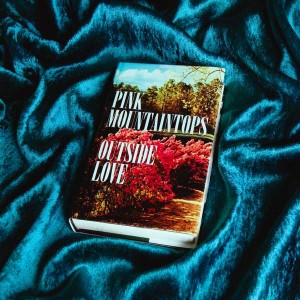I am supposed to be taking mental notes. Every inch of me is screaming at my brain to not enjoy this, to look at this play objectively and critically. I need something to write about, so there is no time to invest, to enjoy or to experience a drop in critical vigilance.
This is very hard, all because of one missing shoe.
Stephen Heatley tried very hard to make this play difficult. A Midsummer Night’s Dream is the classic “boy-meets-girl-but-girl-likes-other-boy-who-likes-other-girl-who-run-afoul-of-a-bored-diety-and-are-put-under-the-influence-of-hallucinogens-hilarity-ensuing†plotline most often seen on primetime teen soap operas, emulated for its utter simplicity. Heatley’s production ups the ante by doubling characters who are playing a role of the opposite gender. So we have a boy played by a girl in love with a boy who is in love with a girl played by another boy who is wildly in love with a girl played by a boy, with a supporting cast of numerous transgendered characters, often with some playing other characters of various genders. While this all seems basic and straightforward enough, there was often times I had to shake myself and remember who was who. Though the program cites this as an “additional challenge†taken on by an “immensely talented†graduating class, anyone who has taken a drama class or been involved in a production can attest that the ratio of women to men in dramatic arts skews to females in orders of magnitude. As a result, it becomes less an instance of carnivalesque and more an issue of personnel.
Not that I can pay attention to any of this because of a single sneaker.
The curtains nearly grazed my nose I was so close. I opted (read: was forced into due to tardy ticket purchasing) for front row tickets and in the packed Fredric Wood Theater (not the more prestigious Chan Center, mind you) I couldn’t help but wonder how old the place was. The design screamed sixties but the theater itself felt older, more experienced than that. The actors took the stage not in a cold open, but militarily, lined up in front of unmarked cardboard boxes presented as the curtain split. They are dressed in drab underclothes, a shirt and trousers, colored slightly auburn, like a russet potato. They all introduce themselves both their real names, the character(s) they portrayed and the costumes they would don over the unremarkable (yet ultimately distracting) underclothes. As one cast member would introduce themselves, the others would busy themselves with costuming themselves for their roles, a masterful display of coordination and preparedness.
Except Bottom (Kim Harvey) has forgotten a shoe. Her sock foot perpendicular to her leg, raised at me in defiance. It is this shoeless foot that will haunt my brain for the next two and three-quarter hours.
I cannot imagine William Shakespeare knew the impact his little comedy would have on literature. Midsummer is prevalent and enduring, I believe, because of its accessibility and its endearing plotline. This, as a result, is usually what production teams tend to focus on, eschewing characters for conveying the plot more clearly. I have personally seen three productions previously and preformed in one and this is the first time where the characters stayed with me past the closing of the curtains. Kim Harvey is pitch perfect as Bottom, layering bombast and pretension near effortlessly and creating the necessary pitiful character Bottom’s need to be memorable. Almost as memorable is Yoshie Bancroft as Quince, a secondary character at best yet in this instance both troubled, tender and often hilarious (aided in no small party by her reckless chauffeuring of her troupe around stage on the ever achronistic golf cart).
Sarah Afful, on another note, presents a quandary. She is simultaneous the most unique and frustrating Puck I have ever witnessed. Tonally, the director put the entire play on her shoulders, and instead of the mischievous and playful nymph we are so used to seeing, her delivery comes off, in a word, sinister. She drags the timid and whimsical storyline into an atonal odyssey through the dark and frightening depths of witchcraft, adding a slightly hellish quality to the production. Even the lighting aides in this, relying far more on shadow than is optically conducive to a pleasurable viewing experience, utilizing the lighting of onstage set lights often to light entire scenes. The set, while sparse, is littered with only the most grotesque and evil looking of trees. This, like the “dark†remakes of various comic book characters during the early 90’s on the success of Spawn, (a black suited Superman, Captain America’s shield drinking blood, et al) works to varying degrees. It also marks the second time I have seen a Shakespeare play end with a musical number, though the difference between the two was akin to the difference between a Hillary Duff and a Marilyn Manson concert.
After the play, my companion for the evening lamented, “It was creative an all, but I cannot help but always be off put by Midsummer.†When I inquired to the reason for this she said, “It always bothers me that the happy ending is the result of unscrupulous and unethical use of a love potion. There is no real love outside that induced by magic. Seems kind of hollow.†I replied “Yes, but you cant deny the appeal of a happy ending, no matter what kind of intoxication is needed to get there.â€
The shoe reappeared the first time it was needed past the introduction. I wonder where it went.
3.5 out of 5 anthropomorphic donkeys.





